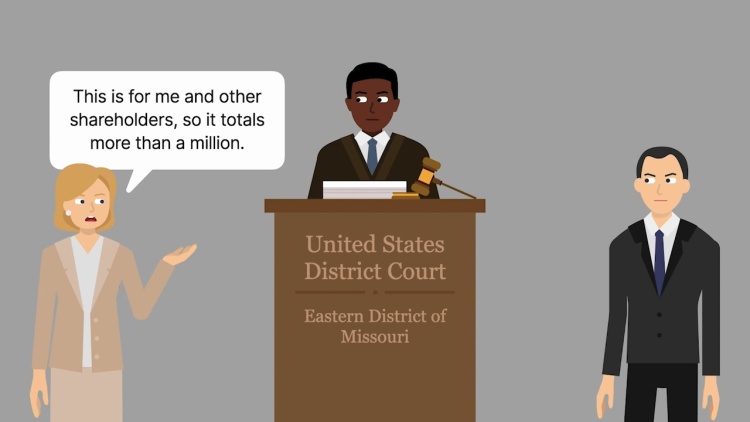Snyder v. Harris (Gas Service Co. v. Coburn)
United States Supreme Court
394 U.S. 332, 89 S.Ct. 1053 (1969)
- Written by John Waller, JD
Facts
In the first case, Snyder (plaintiff) brought a class action on behalf of herself and similarly situated shareholders, grounded on diversity of citizenship, against members of the board of directors of Missouri Fidelity Union Trust Life Insurance Co. (defendants). Snyder’s own claim was for $8,740 in damages, but the total claim of all the plaintiffs exceeded $1,200,000. Similarly, in the second case, Coburn (plaintiff) brought a diversity class action suit against Gas Service Co. (defendant), alleging that it had billed and illegally collected a tax from him and others livings outside city limits. Coburn alleged damages to himself of $7.81, but the total claim of the approximately 18,000 plaintiffs was over the then jurisdictional amount of $10,000. In Snyder, the district court and the court of appeals refused to aggregate the plaintiffs’ damages. Because Snyder’s individual claim did not exceed the then jurisdictional amount of $10,000, the case was dismissed for lack of jurisdiction. Conversely, the district court and the court of appeals in Gas Service permitted aggregation of the plaintiffs’ damages under Rule 23 of the Federal Rules of Civil Procedure (the Rules) as amended in 1966. In order to resolve the conflict among the courts of appeals, the United States Supreme Court granted certiorari.
Rule of Law
Issue
Holding and Reasoning (Black, J.)
Dissent (Fortas, J.)
What to do next…
Here's why 907,000 law students have relied on our case briefs:
- Written by law professors and practitioners, not other law students. 47,100 briefs, keyed to 996 casebooks. Top-notch customer support.
- The right amount of information, includes the facts, issues, rule of law, holding and reasoning, and any concurrences and dissents.
- Access in your classes, works on your mobile and tablet. Massive library of related video lessons and high quality multiple-choice questions.
- Easy to use, uniform format for every case brief. Written in plain English, not in legalese. Our briefs summarize and simplify; they don’t just repeat the court’s language.





